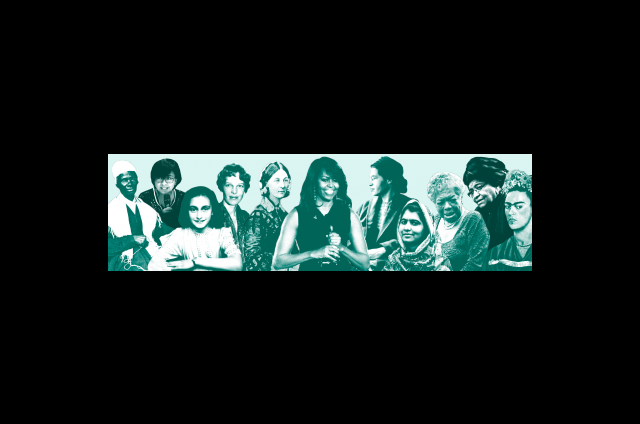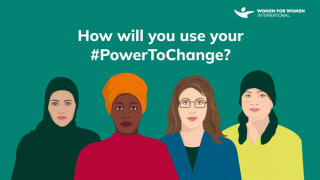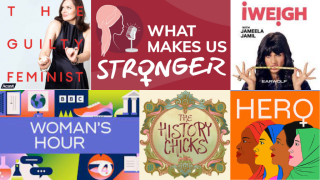Women Leaders & Groups to Add to Your Women’s History Month Celebrations
The history behind Women's History Month
In 1981, US Congress passed a resolution calling for a Women’s History Week.
President Reagan announced that Women’s History Week would be held on the week beginning 7 March 1982, in recognition of the contribution American women had made to the history of the US.
He acknowledged that their role had been ignored and encouraged the nation to plan and participate in activities.
Subsequent years saw more Women’s History Weeks, until in 1987 after lobbying from the National Women’s History Project, Congress passed a resolution for Women’s History Month. In the years that followed more resolutions were passed by Congress, until in 1995, Women’s History Month became an annual event.
Since then, Women's History Month has spread across the Atlantic and is now celebrated around the world.
In a world where women are still struggling for gender equality, and for the right to be respected for the multiple roles they play in society, it is essential that Women's History Month is remembered so that women continue to work for a better world.
At Women for Women International, we are marking Women's History Month by taking the time to celebrate known and less well-known women who have used their #PowerToChange lives and the world around them.
Here is a list of just a handful of women from across the globe who have defied expectations and used their #PowerToChange history.
Wangari Maathai (1940-2011)
After obtaining her Ph.D. from the University of Nairobi, Wangari Maathai became the first woman from East and Central Africa to earn a doctorate degree. She then became chair of the Department of Veterinary Anatomy and an associate professor at the same university, also becoming the first woman in the region to do so.
She stood up to unjust, powerful political forces in her country, including her president, to advance women’s rights and environmental protections. In 2004, her passionate work for the environment led to her becoming the first African woman and environmentalist to receive the Nobel Peace Prize.
Noor Inayat Khan (1914-1944)
Forced to flee her home after France was invaded by Germany in World War Two, Noor moved to England. There she not only joined the Women’s Auxiliary Force but returned to France to spy for Britain. Captured in 1943 by the German secret police, she refused to reveal any information. She was tortured and sentenced to death in 1944. At the end of her life, she is reported to have cried ‘Liberte’.
Ellen Johnson Sirleaf (1938-present day)
After two nearly consecutive civil wars in Liberia that tore apart the country for over a decade, Ellen Johnson Sirleaf was elected President of the Republic of Liberia in 2005.
As Africa’s first democratically elected female head of state, she played a significant role as one of the leaders of the Women of Liberia Mass Action for Peace movement, which brought peace to the long conflict. Nicknamed “Africa’s Iron Lady,” President Sirleaf led Liberia through a steady recovery, while making women’s rights among her priorities.
For her courage and commitment, President Sirleaf was awarded the U.S. Presidential Medal of Freedom in 2007 and the Nobel Peace Prize in 2011.
Guajajara ‘women warriors’ (present day)
Over the last decade, the Caru Indigenous Territory has been devastated by land conflicts and the highest rates of deforestation in Brazil. To save the Amazon and its natural resources, the Guajajara ‘Women Warriors’ took matters into their own hands.
The women formed their own group by joining forces with other indigenous women’s groups to build collective power. Along with protecting their home, they’ve begun carving more opportunities for women in their communities.
Miriam Coronel Ferrer (1959-present day)
Miriam Coronel-Ferrer has dedicated her life to public service and advocating for women’s roles within peace negotiations and peace processes.
In 2010, she joined the Philippines’ panel to negotiate peace with the Moro Islamic Liberation Front, a rebel group seeking autonomy for Bangsamoro people in the southern Philippines. She became the first chief female negotiator to sign a peace accord with a rebel group—after decades of conflict—and called it a landmark moment for women in the Philippines.
Read more
On International Women’s Day 2022, we want to elevate the voices of the changemakers in the countries we work. These are women who are demonstrating their #PowerToChange social norms and are committed to creating a ripple effect for generations to come. Meet Khalida, Latifa and Zainab - women in our global team who have shared their inspiration, changes they've seen, and their hopes for the future.
This Women's History Month, explore new perspectives on feminism and womanhood by delving into these podcasts. From career advice to current affairs, each episode is sure to remind you of your inner power and the change we can make if only we dare challenge the status quo.
Women's History Month Reading List
subtitle:
This Women's History Month, get inspired by these female authors who are using their #PowerToChange to bring awareness to injustice, inequality and the incredible resilience of women.




